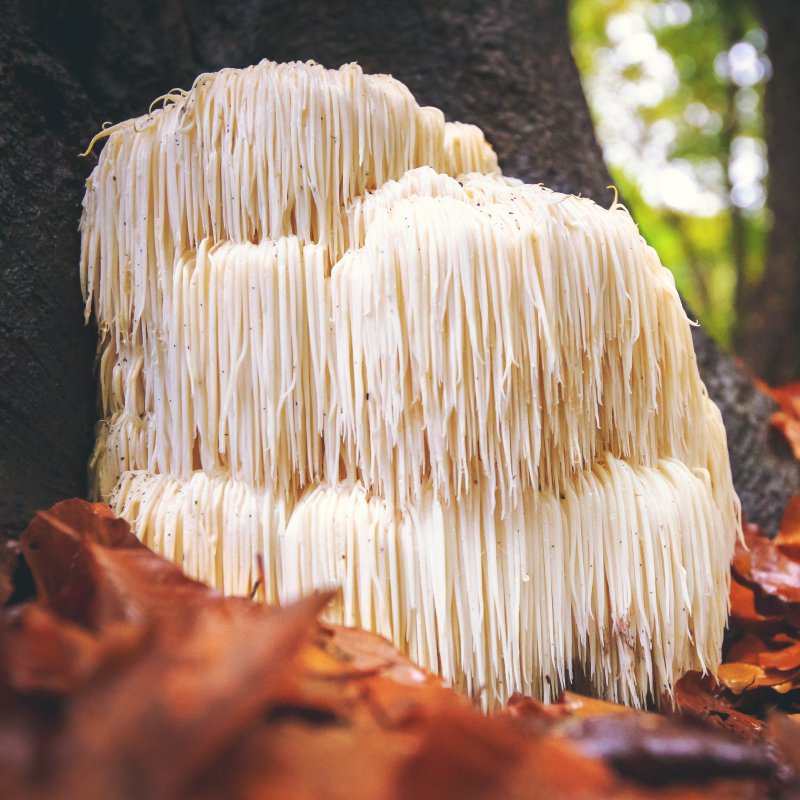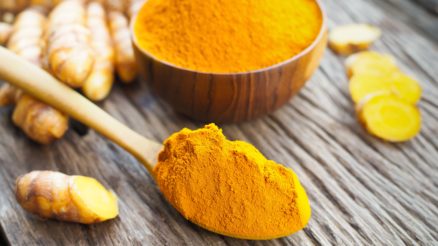Lion’s mane mushroom (or hericium erinaceus) is a white, shaggy shaped mushroom with a long spine. These mushrooms have been used primarily in parts of Asia for both culinary and medicinal purposes. The mushroom is known by many other names including monkey head mushroom, pom pom mushroom, hedgehog mushroom and bearded tooth fungus. In Japan, lion’s mane mushrooms are known as yamabushitake.
Lion’s mane mushrooms are often used in traditional Chinese medicine to support the brain and neurological health. It has also been used traditionally to fortify the spleen, nourish the gut and as an anticancer drug. In many other parts of Asia the mushroom is largely utilized for culinary purposes.
The mushroom has numerous health benefits including:
1. Reducing Depression and Anxiety
Extracts from lion’s mane mushrooms are said to be helpful in reducing depression and anxiety. An animal study conducted on mice supports this claim. The research concludes that lion’s mane mushroom extract has anti-inflammatory effects that can reduce symptoms of both anxiety and depression in mice. Another small study that was recently conducted on menopausal women also suggests that eating lion’s mane mushroom reduced feelings of irritability and anxiety.
2. Aiding in Fighting Inflammation
Lion’s mane mushrooms are said to be extremely high in antioxidants. A 2012 study conducted to evaluate fourteen mushrooms found that lion’s mane mushrooms had the fourth highest antioxidant activity. Chronic inflammation is often the root of many illnesses including heart disease, inflammatory bowel disease and autoimmune disorders. Lion’s mane mushrooms are believed to be able to help reduce inflammation and help reduce the impact of these illnesses.
3. Improves Digestive Health
There have been multiple studies conducted that have shown that lion’s mane mushrooms may protect against or even help to shrink stomach ulcers. Besides this, lion’s mane extract is also theorized to reduce inflammation. It is thought to be helpful in treating diseases like inflammatory bowel diseases, in particular Crohn’s disease and ulcerative colitis.
4. Improves Immune Function
Various studies have suggested that lion’s mane mushrooms are helpful in improving immune function. This is partly due to its anti-inflammatory properties. Besides this, research has been done on how it may increase the growth of good bacteria in the gut and thus help to boost immune function. So far research has only been through animal studies so further research is still needed to provide more conclusive evidence.
5. Helps Control Blood Sugar Levels
Several animal studies have revealed that lion’s mane mushrooms improved blood sugar levels in mice. In addition to lowering blood sugar levels, lion’s mane extract may also help in reducing nerve pain in hands and feet linked to diabetes.
6. Boosts Cognitive Function
Lion’s mane mushrooms are considered to be nootropic foods. Nootropics are drugs or supplements that are thought to improve cognitive function in healthy individuals. In a recent animal study, lion’s mane mushroom was found to stimulate cognitive function and improve memory in rats. Recent research has also found that taking supplements of lion’s mane mushrooms has been found to protect against the spread of neurodegenerative disorders like Parkinson’s disease. However, this research is still in its infancy and more studies are required to confirm these findings.
7. Nervous System Recovery
Our nervous system is made up of the brain, spinal cord, and sensory organs along with the nerves connecting these organs with the rest of our body. Damage to any part of the nervous system could be devastating. The result of damage may be paralysis or even loss of mental functions. This may take long periods of time to heal. According to recent research, lion’s mane extract may help for our nerve cells to grow and repair more quickly. Animal studies also suggest that lion’s mane extract might help to reduce the severity of brain damage after a stroke.
8. Supports a Healthy Heart
Research conducted on rats suggests that lion’s mane mushrooms may help in lowering cholesterol. However, further research is still required before making proper conclusions. Lion’s mane mushrooms also contain a compound called hericenone B. This compound can decrease the rate of blood clotting and lower the risk of a heart attack or stroke
9. May Protect Against Cancer
Research indicates that lion’s mane mushrooms may protect against various forms of cancer including leukemia, stomach cancer, cervical cancer, liver cancer, colon cancer and breast cancer. Studies that have been conducted have shown that lion’s mane extract helps to kill cancer cells or to slow the spread of cancer. However, to date only animal studies have been conducted. The mushrooms have not been tested on humans so more research still needs to be done before these findings can be verified.
Side Effects of Lion’s Mane Mushrooms
Most research on lion’s mane mushrooms has been on animal studies where even high doses did not have any adverse effects on the subjects. However, in Asia where the mushrooms have been consumed for centuries, moderate dosages do not appear to have caused any adverse reactions and are safe to eat.
It should be noted that like with any other dietary supplements one should consult with a medical practitioner before consumption. Those with mushroom allergies should completely avoid eating lion’s mane mushrooms. Some people have been known develop rashes, itchiness or breathing difficulties (in this scenario the supplement should of course be stopped immediately).
How to Benefit from Lion’s Mane Mushrooms
Lion’s mane mushroom’s can be sautéed with garlic or sautéed with greens. It can also be cooked into rice or pasta. It can quite simply be incorporated into most recipes that call for mushrooms. Besides this, lion’s mane mushrooms can be taken in the form of supplement capsules. They are usually sold as a combination with other herbs or sometimes with lion’s mane mushroom as the sole ingredient. Lion’s mane mushrooms are commonly combined with other herbs like reishi, cordyceps, gingko biloba and ashwagandha. The combination is usually to promote good brain health. They are also available in extract or powder form.






